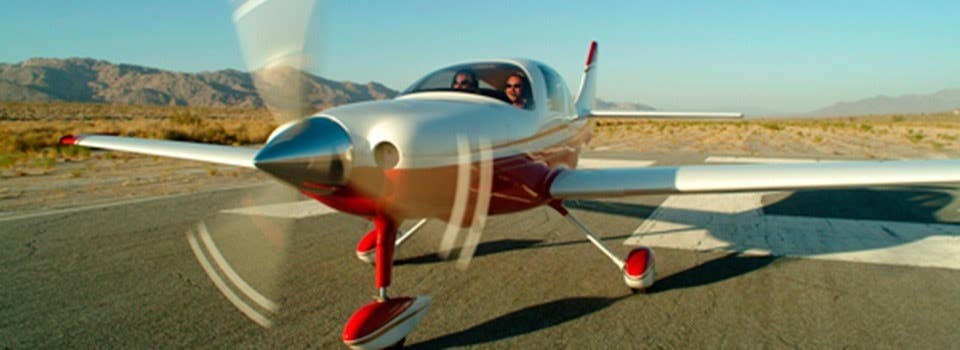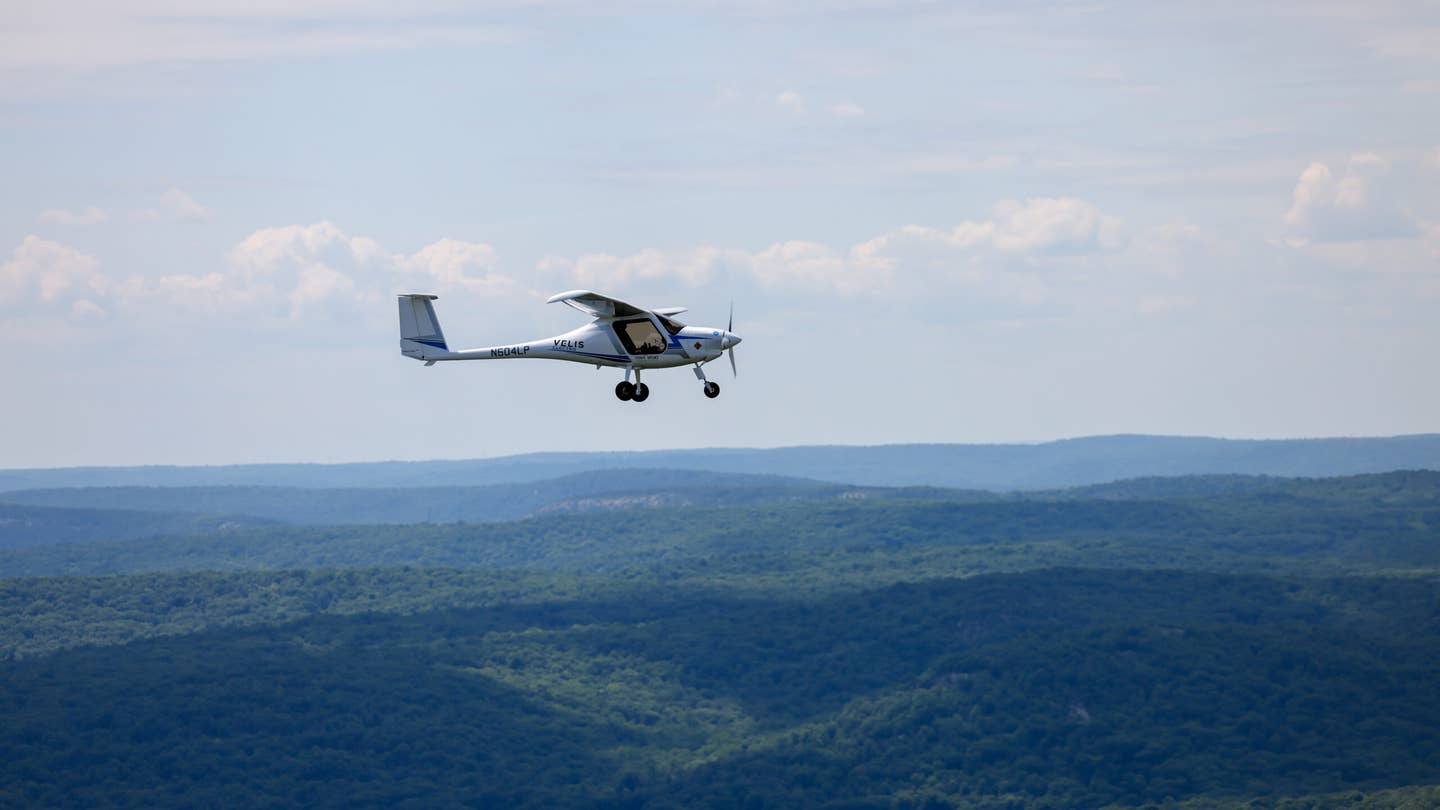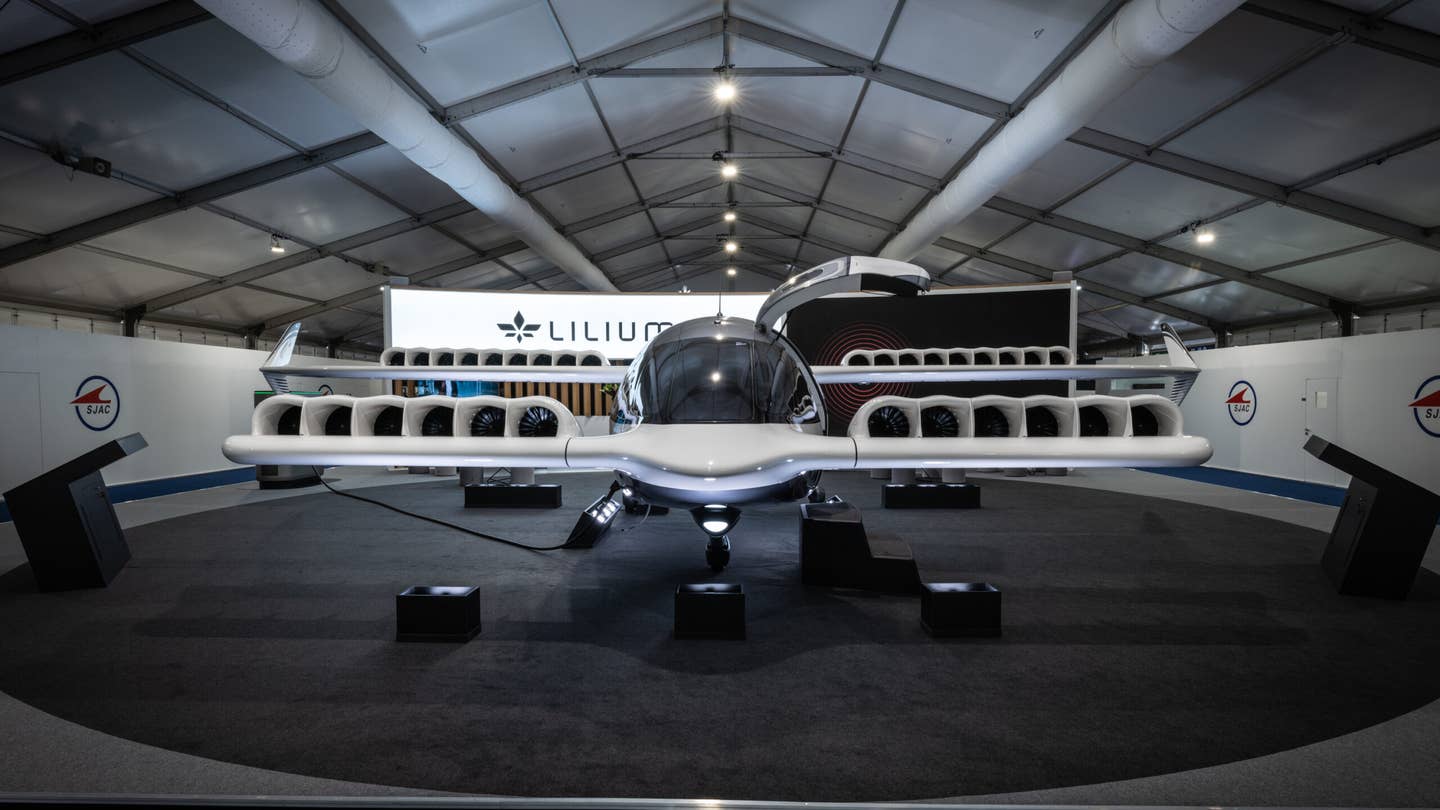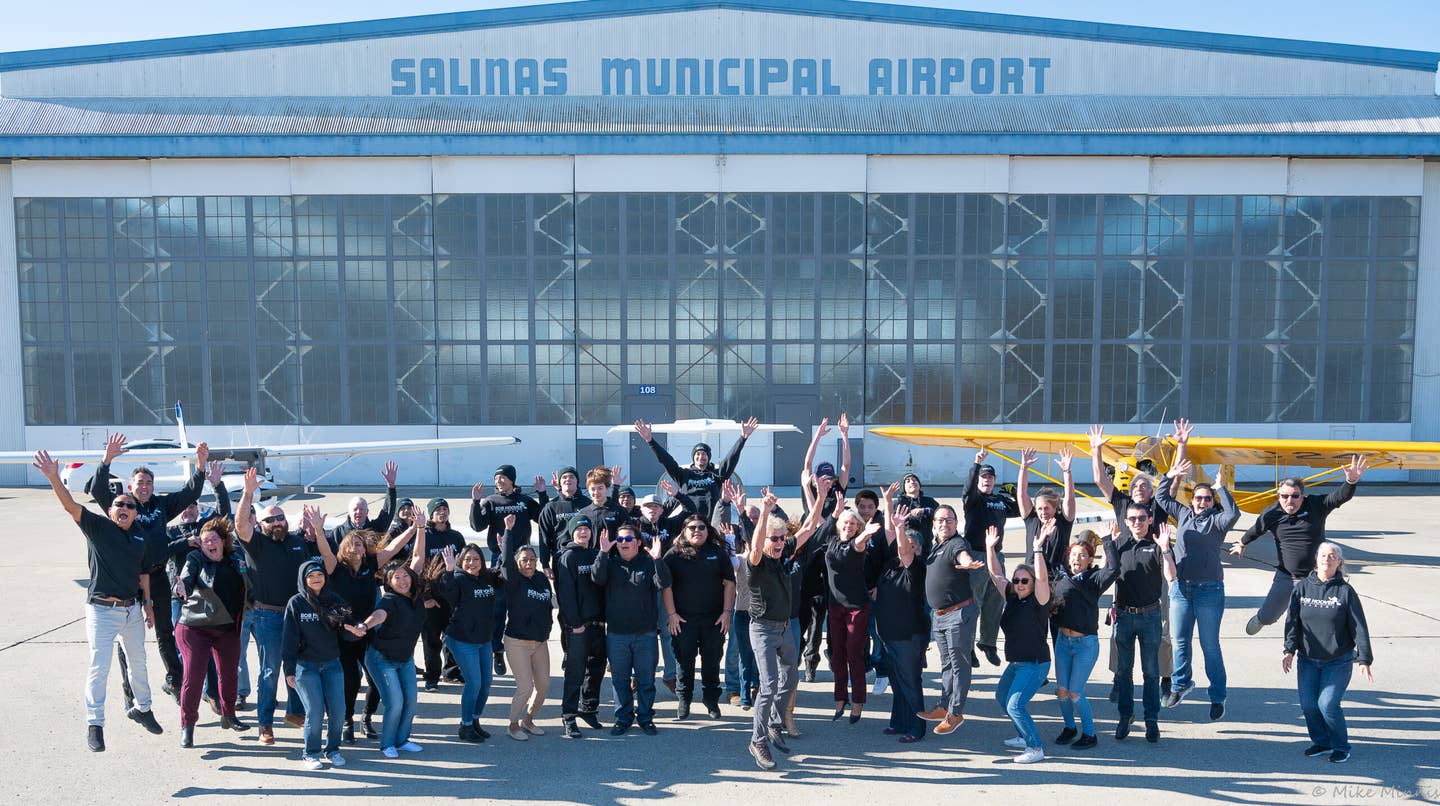Lilium Partners with PhilJets for Electric Jets in Philippines, Southeast Asia
The German manufacturer and its partner will study regional air mobility routes, city pairs, passenger demand, and more in the ASEAN market.
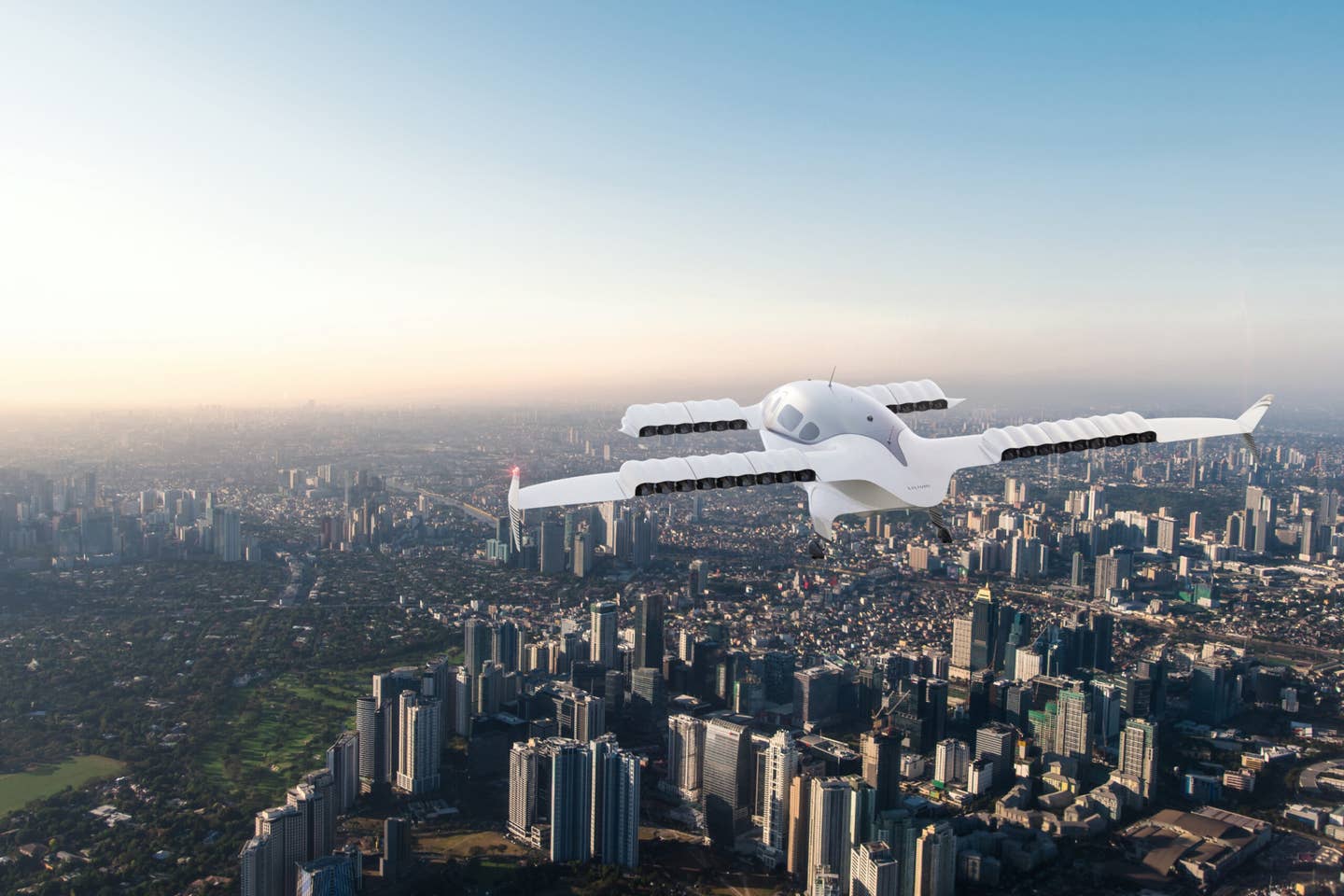
A digital rendering depicts the Lilium Jet flying over Makati City in the metropolitan area of Manila, Philippines. [Courtesy: Lilium]
German manufacturer Lilium intends to bring its seven-seat electric vertical takeoff and landing (eVTOL) Lilium Jet to Southeast Asia.
The company on Monday announced a partnership with the Philippines’ PhilJets to bring its flagship Jet and high-speed regional air mobility (RAM) services to the region, starting with the Philippines.
PhilJets operates private and commercial flights with a fleet comprising 15 private jets and helicopters, with plans to expand it in the next three years. It also has a maintenance services affiliate that supports more than 100 helicopters.
Lilium intends to launch RAM—a subset of advanced air mobility (AAM) that primarily connects cities within a region—across the continent and worldwide. Its road map contrasts with the urban air mobility (UAM) model pursued by competitors such as Joby Aviation and Archer Aviation, which plan to serve individual cities or metro areas.
The collaboration between Lilium and PhilJets follows the manufacturer’s agreement in June to deliver 100 aircraft to Chinese air transport operator Heli-Eastern.
“Our strategic partnership with PhilJets will expand our footprint even further in Asia, bringing the Lilium Jet to Southeast Asia,” said Sebastien Borel, chief commercial officer of Lilium. “The Philippines is well suited for eVTOLs to effectively connect thousands of islands together through sustainable and high-speed air mobility. Asia is a key market for Lilium, and with the unique topographical challenges this region presents, the innovative design of the Lilium Jet is uniquely suited to address them.”
A memorandum of understanding (MOU) signed this week at the Singapore Airshow signals PhilJets’ intent to purchase and operate 10 Lilium Jets.
The MOU also calls for a future strategic collaboration to build an eVTOL network across the Philippines and other Southeast Asian nations, including Cambodia. The partners will leverage PhilJets’ expertise in the ASEAN (Association of Southeast Asian Nations) market to scale up.
“With its growing economy, geography and important tourism industry, the Philippines is a great match to the Lilium Jet´s capabilities,” said Thierry Tea, chairman of PhilJets. “Innovation in aviation is gaining traction among regulators, urban planners, and industry leaders of worldwide economies. Providing efficient connectivity to customers while reducing carbon emissions is a major focus for air transport operators such as PhilJets.”
Lilium and PhilJets will jointly define routes, city pairs, and passenger demand for on-demand RAM services in Southeast Asia. They will also identify potential sites, requirements, and collaborators for landing infrastructure in the region, such as the selection of vertiport partners. Further, the partners will share vertiport specifications, and Lilium will provide access to its existing network of charging hardware providers.
“As a country with more than 7,500 islands, Lilium’s approach for regional air mobility is a perfect fit for eVTOL service in the Philippines and showcases the broader opportunities for island nations across the globe,” the manufacturer said in a news release.
In the Philippine capital, the local San Miguel Corporation is building the New Manila International Airport, expected to open in 2027. The project is one of many in the region that aims to embrace new forms of aviation.
For example, in Cambodia, the partners’ other intended launch market, the Overseas Cambodian Investment Corporation (OCIC Group) is building the Techo Takhmao International Airport to replace Phnom Penh International Airport (VDPP) in 2025.
To reduce carbon emissions, both initiatives are exploring charging stations, flight routes, and other considerations for flying taxis and electric jets.
Lilium’s collaboration with PhilJets follows the start of production of seven type-conforming Lilium Jet prototypes, which the manufacturer will deploy for European Union Aviation Safety Agency flight testing. Crewed flights are expected to begin this year, with certification via EASA intended for 2026.
The all-electric, seven-seat Jet is designed to provide low-noise, zero-emission flights in densely populated areas. It will primarily fly RAM routes between towns and inner cities, cruising at 162 knots on trips spanning 25 to 125 sm (22 to 109 nm). Unlike the tiltrotor designs of competitors, the aircraft has no moving parts: its 36 electric ducted fans support vertical takeoff and landing, with fixed wings for cruise.
Lilium is the only commercial eVTOL manufacturer with certification bases from both EASA and the FAA. It plans to leverage the Bilateral Aviation Safety Agreement between the two agencies to accelerate commercialization on the U.S. side.
In partnership with Houston-based EMCJet, a full-service aircraft brokerage and management firm, Lilium will deliver five Pioneer Edition Jets to private customers in the U.S., billed at $10 million per aircraft. The Pioneer Edition—the four-seat planned launch edition of the full-scale Jet—is aimed at wealthy GA and business aviation operators and will be the first aircraft of its kind available for private sale in the U.S., Lilium said. A total of 50 are expected to be delivered globally.
After selling the Pioneer Edition, the manufacturer will roll out its flagship, seven-seat model worldwide. Orlando International Airport (KMCO) is expected to serve as an initial hub for U.S. operations.
Like this story? We think you'll also like the Future of FLYING newsletter sent every Thursday afternoon. Sign up now.

Subscribe to Our Newsletter
Get the latest FLYING stories delivered directly to your inbox



